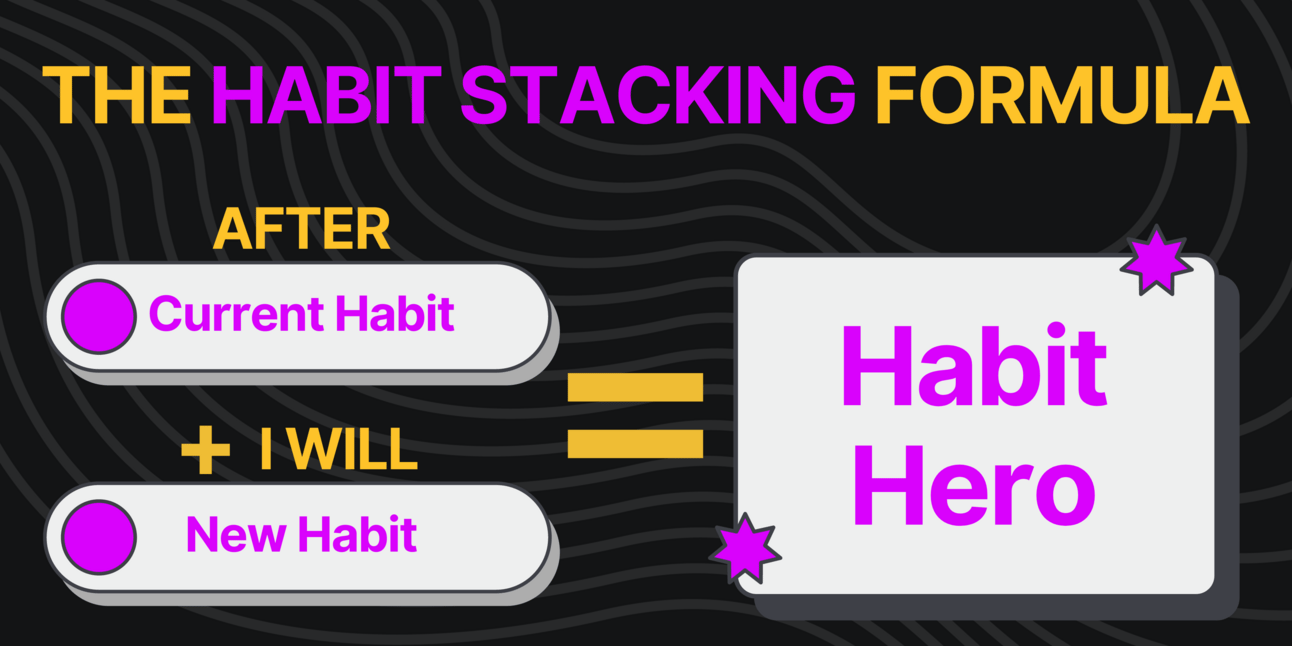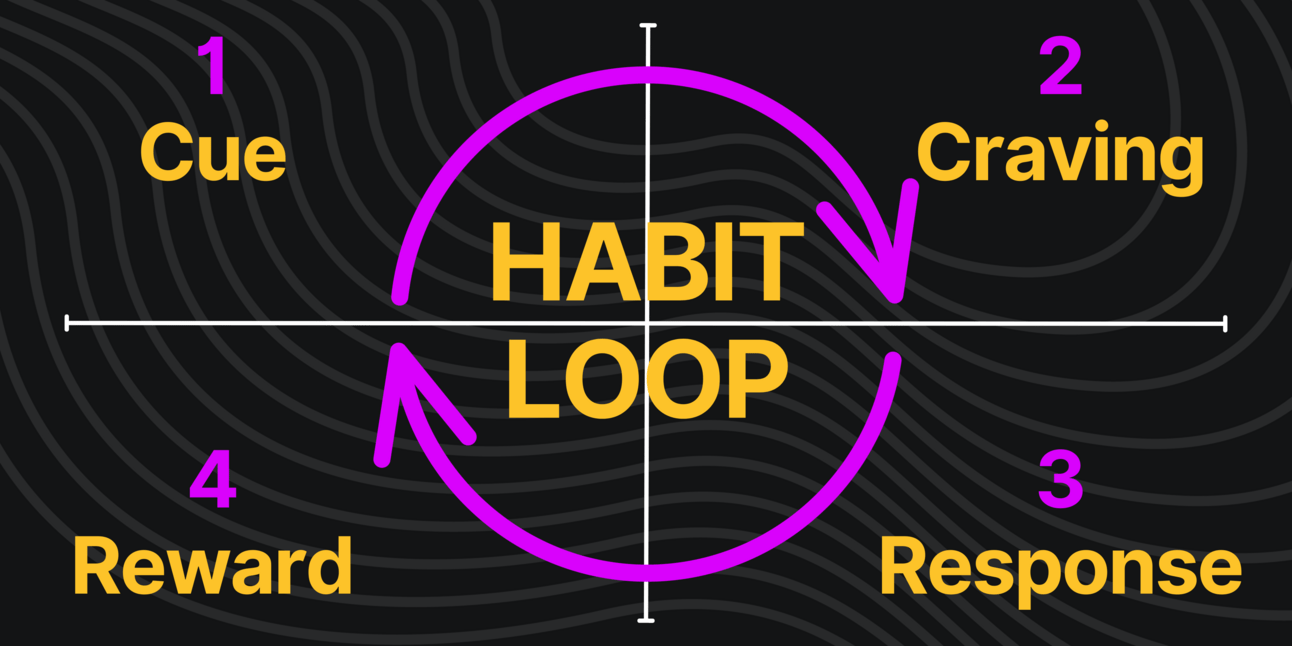
Prequel’s goin’ on the road!
And I’d love to meet you. 😁
As we begin to plan in-person events to connect remarkable kids (and their parents) with each other, we need one vital piece of information – your location!
Can you please take 30-seconds to tell us where you live? 👇
Today’s issue builds on outstanding research from James Clear, author of one of my favorite books, Atomic Habits.
As a competitive figure skater, I learned that my success was merely the accumulation of great habits like:
✅ Waking up early every day.
✅ Showing up to the rink ready to train.
✅ Repeating a jump over and over until it was perfect, despite my badly-bruised behind.
If there’s one thing we should be teaching our kids, it’s how to adopt good habits. This singular skill can make all the difference.
Let’s dive in.
Nearly half of you told us you’re concerned about your teen’s ability to master life skills, including developing good habits.
Adulting is tough, even for the best of us. 🤷
Give your teen the head start you didn’t have.
Send them to BETA Camp where they’ll collaborate with ambitious peers to:
📊 Launch a business
🤝 Earn trust
💰 Generate revenue
Enrollments close this Sunday. Space is limited. Get on it.
How to get your kids to do their homework (without asking)
You have more influence over your kids’ habits than you think.
Just ask renowned habits expert James Clear, whose bestselling book Atomic Habits has sold over 16 million copies.
Clear says there are 4 ways to change behavior (notice that none of them are nagging, bribing, or threatening):
Make it obvious
Make it attractive
Make it easy
Make it satisfying
So how can you use Clear’s laws of behavior change to get your kids to do their homework, clean their room, or spend less time on their screens?
Let’s break it down. 👇
1. Make it obvious.
The first step of forming any new habit is choosing what Clear calls a cue. A cue snags your attention so you can remember your habit.
(Like the old-school life hack of tying a string around your finger so you don’t forget something.)
For kids, Clear suggests using a cue called habit stacking.
This means that you identify a habit your kids are already doing, and tack on the desired new habit to the end.

Brb…I’m habit stacking.
Here’s an example:
Current habit: Eating an after-school snack.
Desired new habit: Doing their homework.
Habit stack: After my kid eats their after-school snack, they’ll find out what homework is due tomorrow.
⚠️ Notice that this example only included the habit of finding out what homework is due tomorrow, not actually doing the homework.
The key here is to start small — more on that to come.
2. Make it attractive.
Kids tend to dig their heels in, so parents must find a way to make new habits enticing.
James Clear suggests giving kids as much control as possible over how, when, and where they enforce a new habit — so they get a taste of that sweet, sweet autonomy.
You can say:
💬 “Do you want to start your homework before or after dinner?”
💬 “Would you like to put your toys away after you play with them, or clean them up all at once at the end of the day?”
💬 “Instead of scrolling on TikTok, you can either read, make art, or play a board game.”
3. Make it easy.
The easier a new habit is to implement, the better. This is why we suggested earlier to start small.
But this doesn’t mean you’re giving your kid an easy out.
“The idea behind make it easy is not to only do easy things. The idea is to make it as easy as possible in the moment to do things that payoff in the long run,” says Clear.
📚 Make it easy to study by setting up a quiet environment where they can focus.
🧸 Make it easy to clean up by getting dedicated bins so every toy has a home.
🎲 Make it easy to opt into family time by starting a family game night tradition.
4. Make it satisfying.
Kids (and adults for that matter) are more likely to adopt habits that are enjoyable in some way.
An easy way to make a new habit satisfying? Praise them!
James Clear notes that sometimes parents end up criticizing the very behavior they want to see in their kids.
Comments like:
“It’s about time you cleaned that room!”
“Well, look who decided to join us.”
“What’s this? Doing homework? Who are you and what have you done with my daughter?”
These criticisms remove any and all satisfaction from the habit.
So if you want your kids to have good habits, dish out some praise instead!
Now, let’s bring it all together:
The best way to instill new habits in our kids is to make it obvious, attractive, easy, and satisfying.
The first three laws make habits happen this time.
But the fourth law makes a habit happen next time.
When you bring in all four strategies, you create a habit loop that will reinforce with each repetition. 👏

Gimme those rewards!
If you want to change your kids’ habits, first change yours
Kids don’t always do as we say, but they tend to do as we do.
“Interestingly, one of the best ways to motivate your children to act a certain way is to act that way yourself,” says Clear. “Humans are master imitators.”
Science backs this up — parents’ screen habits affect their children’s habits. 📱
Think about it: Do your kids see you checking your phone in between work tasks? More importantly, do they see you doing anything else besides scrolling on social media?
But it’s not just screen time:
Children mimic their parents' food choices, according to this study.
Parents can influence their child’s exercise levels.
Even their kids’ study habits are predicted by parents' learning preferences, according to this study.
Want to change how your kids behave? Science says change the way you behave first.
A big caveat: Adolescence changes everything
As kids grow into teens, parents no longer have as much power to influence their child’s behavior.
Instead, peers do.
As James Clear notes: “If you want your kids to find certain habits attractive, put them in environments and groups where their peers will also be doing those habits.”
This is why joining a program like BETA Camp is so beneficial. Kids get:
A peer group of the most ambitious kids you’ll ever meet
A culture that celebrates going above and beyond
Program directors who our students describe as “not teachers, but friends who are older” 🫶
Remember, teens naturally want to fit into their peer group.
So, make sure their peers are doing all the things you wish your kids would, too.
Can you do us a small favor?
This week, we would be over the moon if you could answer three short questions for us. It’ll take less than a minute, and will help us out a ton!
What did you think of today's issue?
Until next time,
Ivy
CEO Prequel, BETA Camp, Apollo, AI Masterclass
Follow my journey on LinkedIn

